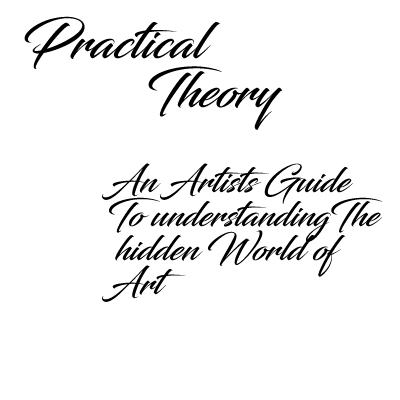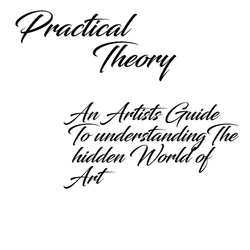Sign In
ClosePractical Theory Engaging the conceptual world. by kemonocross

Practical Theory. Engaging the conceptual world and the various levels of abstracted reality.
In order to truly develop the mechanisms underlying the artistic process one must first begin by understanding how the mundane world we live in is in turn shaped and defined by the thoughts, feelings and ideas that form our associations, impressions and attitudes in terms of the specially encoded information we call culture because in each individual being exists a world separated from the borders of reality by boundaries that exist only in their own minds. And since none of us can ever know what's going on in another's mind barring some giant leap in terms of as yet undiscovered technology that would allow us to recreate or reconstruct the essential events and experiences that make up anothers life, and why anybody would ever want to experience being someone else in such a way is beyond me, as being a writer I can tell you honestly that once you begin to blur the lines between a character's identity and your own, there's no going back, and quite frankly the experience isn't all its cracked up to be, as the risks to your mental health and sanity are considerable. Extinction events, Apotheosis, the annihilation of the ego, take your pick, because one of the biggest underlying problems in being an artist of any stripe is that art does not in any way enable a continued existence as individual beings. To wit, it neither provides us with the substance of life nor the material necessary to acquire it. Which is of course a fancy way of saying that a farmer who plants seed in the ground will be able to harvest the fruits of such efforts, while an artist who paints a bowl of fruit can neither eat it nor plant it, thus they must ever strive to convince others of the value of that which they produce in terms of its existential rather then immediate benefit. And to say that art is indeed an essential part of being human obviates the underlying issue, which is to say that many of us will remain unconvinced that in times of lack and hardship a painting of a bowl of fruit will be every bit as valuable as the real thing. Art, by itself then, can only exist when it in turn serves the unspoken needs of the community rather then the desires of the individual who seeks to create it, as without the support of said community, the individual in question will always fall prey to the limits of their own ability. Now if that sounded overly nihilistic, well its simply another facet of reality that all artists will have to one day recognize as the resolve that arises from having confronted such unpleasant truths is what in turn allows us to solidify our sense of selves whenever we engage with the conceptual world, as the borders that serve to define and distinguish that world are always in a constant state of flux, and that means its very easy to erase all traces of our selves from that world and become nothing more then extensions of our own shadows.
Now for anyone wondering what the hell it was I just said, good luck getting me to go into all of the details as a lot of the phenomena that underlay art can only be understood through direct experience rather then tangential or vicarious means, that, and I just went and name dropped a few high level concepts and it would take far more time then I'm willing to commit to this enterprise to try and illustrate them all. So, once again, we're back to dealing with the underlying issue of how artists in turn learn to engage with the conceptual world. How audiences engage with the conceptual world is a different issue entirely and while it has some overlap in terms of the extension of self, mirror neurons, and various other psychological phenomenon, the audience's experience is going to be both pre-defined and self contained, whereas an artist's, is not, so for now the best way for me to begin talking about the conceptual world artists typically engage with is to talk about some of the ways that reality can be abstracted. Of course, when I say abstracted, I'm referring to both the physical and material aspects of reality, as the conceptual and spiritual aspects are already abstracted to begin with and those lie within the domain of philosophy and can only be engaged with in the realm of thought and since that's where we're trying to end up, it doesn't do anyone any good to try and start there.
Now, with that delightful bit of rhetoric out of the way, its important to understand that the conceptual world is not a mirror reflection of our own, rather it is part of the etheric field that allows for the essential connection between thought and action to take place as our ability to project actions into the future in order to then manifest and achieve a goal can be illustrated by the fact that in order to type this, I first have to think of the words I want to say, then structure them according to an internal logic, and then execute a series of mechanical actions that moves my hand across the keyboard in a way that reflects all of those sequences of thought. Habitual patterning has sublimated that process to an all but automatic action but it wasn't always so and it took a considerable amount of thought on my part to develop the underlying systems involved. Makes Laplace transformations look like basic arithmetic in comparison, but art at the highest level of the craft touches upon pure spheres of mathematics so its easy to see why the two overlap. Of course, this in turns leads me to a very important point to make, that even though extemporization is the means by which we devise new solutions to the problems we tend to encounter while exploring the conceptual world, any solutions we attempt to return with will become by definition abstractions, as reality doesn't like it when you attempt to apply a teleological response to chaotic forces governed by entropy, and because reality is a system of self organizing hierarchies, any attempt to impose one's will upon it is going to be met with not inconsiderable resistance. Hence the reason why ideas are easy, execution is hard, as its one thing to expend mental energy, that's a resource humans have in vast abundance, physical energy on the other hand, requires ever increasing amounts in order to achieve diminishing levels of return. Which is why machines allow us to function at far greater levels of ability then we could achieve on our own, but now I've gone and digressed. So when we first begin to actively engage with the conceptual world our primary means of doing so is based on following the previously established paths or by exploring some of the more concrete forms that have been left to us by our predecessors. I'm not going to include memetic legacies and environmental factors in this statement as those can both be classified as indirect forms of engagement and in terms of working with specially encoded information most people aren't actively aware of them anyway, onwards. I am of course referring to things like books, music and any other form of media where the zone of proximal development and observational learning come into play, as our ability to develop the skills we need as artists to navigate the conceptual world are in turn path dependent on the degree to which we are exposed to the various concepts involved. And this was my playground growing up as being neurodiverse, a mundane world made up of interpersonal relationships that I had no meaningful connection to was never going to be anywhere near as interesting as the things I was teaching myself how to do with my own mind. Anyway its an important distinction to recognize that we aren't born with any kind of innate ability or temperament that allows us manifest the qualities that allow us to in turn become artists. Case in point I started out at absolute zero and worked my way up to my current level of ability, so from where I'm standing training and methodology trumps talent and genius every time as neither of those things ever put a pencil in my hand and sat my ass down to do the work. Our initial environment and psychosocial development on the other hand cannot be discounted as people can only grow to the limits of the least available resource and the associations imprinted upon us in terms of ideological notions and exposure to idealized value systems have a far reaching impact that can in turn echo throughout our lives. So if the prevailing attitude towards becoming an artist is largely negative in our previous or current environment then any or all of our interactions with the conceptual world is going to be influenced by that perception until we act to correct it. And the reason for this is because the conceptual world is both an extension of the self and a representation of either the idealized or the unrealized thoughts and values that we currently hold within our selves. Don't even get me started on how the rise of augmented reality is causing the emergence of a new level of consciousness I'm from now on going to refer to as the meta ego, because becoming emotionally invested in a virtual world is bad enough, the idea of living in a purely exitistential form of reality however, terrifies even me. So when we take two abstracted layers of reality that can only be experienced by the individual in question, the internal world that is experienced vicariously through art and the external world that exists only briefly as an intertemporal juncture in terms of reconstructed memories, and we start applying the heteropia effect, is it any wonder that artists refer to their experiences working with the creative process in ways that can best be described as new age hand waving hippie woo woo? I've studied this subject for ten years now and even I can't help but feel I come off sounding like a complete and total fruitcake. Anyway, because the holy grail of the scientific method is in turn predicated upon reproducible results, the sheer number of variables involved in the artistic process makes looking for exact matches an untenable position, so the best we can work with is a body of evidence built upon the collective experiences of past generations. Which in turn means its not the most effective methods that survive, its the most popular, and in terms of being an artist there is an unconscious bias towards that which makes us feel better rather then that which makes us more effective, but then we've come full circle on that one as its not the results of our efforts that sustain us as artists, its the process. The sales we generate from our art on the other hand definitely go a long way to supporting us financially. Another unpleasant dichotomy that must be resolved but in order to do so we must first recognize our intrinsic and extrinsic goals and desires and separate them as they're not necessarily compatible with life in either the mundane or conceptual worlds.
Now, before I leave off I really should talk about how the conceptual world works as I don't believe I've actually discussed that part yet. To start with, the conceptual world is an aspect of reality that is made entirely out of ideas. For instance if you want, you can imagine yourself standing in the middle of a desert, you can feel the heat beating down upon you like an angry fist, and the thirst that saps your strength as you probably get the idea by now. Of course in order for ideas like that to work we must first be aware of the concepts involved as if you've never seen nor heard of a desert before, you simply can't imagine it as the true nature of the concept simply doesn't exist in a meaningful way the mind can begin to make sense of. It can abstract the concept, it can try to make sense of the concept by attempting to create similar associations, but true comprehension will in turn elude us until we have direct or in some cases indirect experience working with the concept in question. Which is where conceptual awareness comes into play for artists as all concepts require at least some degree of familiarity to work with as without them we have nothing to build upon. Even the best extrapolation is a poor substitute for the real thing, but when people have no baseline for comparison, they invest more emotionally in that which they can have then that which they can't. So, you can't argue the value of eating a meal at a five star restaurant when people have no experience or understanding of the concepts involved because it simply isn't a part of their awareness. Which is why its part of our job as artists to expand people's awareness of such concepts because with no audience to connect to, we're really just playing with our selves. Which is a bad pun on so many levels and yet remains an oddly true statement so I'm running with it. When we're actively engaging with the conceptual world however, one of the things we must first learn to be aware of is that reconstructed memories can have the same affect on us as genuine experiences, which in turn becomes the foundation of how we can eventually learn to navigate the conceptual world as once we learn how to equate sensation with the health and well-being of a project we can better adapt ourselves to prolonged exposure to the rigors of being in that world. Remember, I did mention that there's nothing in the conceptual world that actually sustains our existence as physical beings, so as satisfying as it can be to muck about with the very stuff of reality, at the end of the day you still can't eat it, as its only when we attempt to transform the intangible nature of ideas into a tangible aspect of reality that we attain something which others might desire to possess. But that's a whole other ball of wax. As for the structures we can build in that world, I'll talk about those another time as this is already way more existential then the things I'll typically write about its time I took a break. So until next time folks, have a good day!
If you feel like if you feel like supporting Practical Theory or any of the future projects I have in store then check out my Patreon page, the link can be found here: http://patreon.com/user?u=3705901
Practical Theory, an artist's guide to understanding the hidden world of art, is a blog in which I'll be discussing all the weird, strange and semi-mystical things I've encountered while researching the emergent principles inherent in the transdisciplinary nature of art. So if you've ever wondered why art works the way it does, or if your just a fan of seeing if words can be weaponized in a way that can make people's head explode, check it out!
Submission Information
- Views:
- 669
- Comments:
- 0
- Favorites:
- 0
- Rating:
- General
- Category:
- Literary / Other



